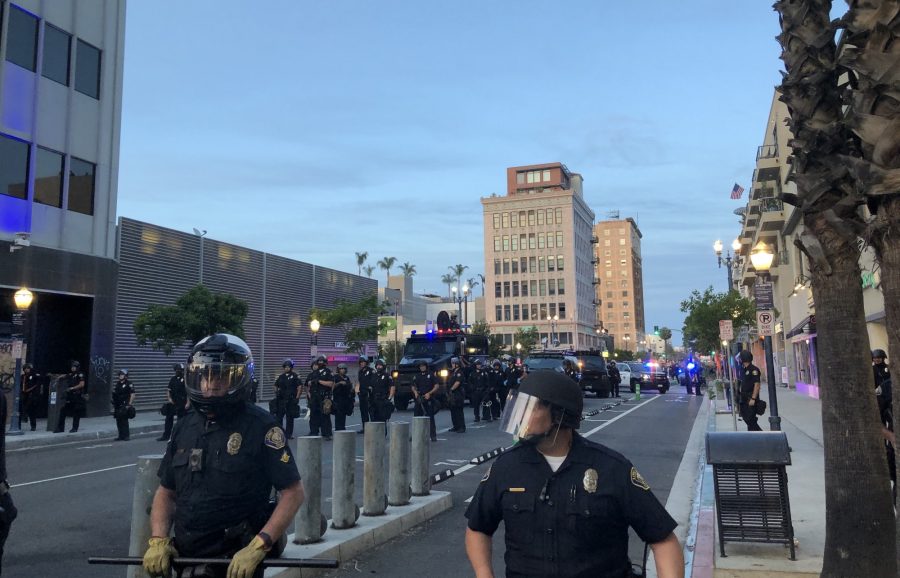What do you know about crime? More importantly, how did you learn what you know?
According to the Bureau of Justice Statistics, only 21% of Americans had contact with the police in 2015. According to the FBI, both violent crimes (which include assault, murder, rape and robbery) and property crimes (which include larceny, motor vehicle theft and burglary) have been on a steady decline since the 1990s.
Most Americans don’t interact with the police and most Americans aren’t involved in any crime. So: Without any personal involvement, how do Americans know what we know (or what we think we know) about crime?
At least one answer to this question is television. Television is one of the most powerful tools by which individuals learn about the world around them. What we watch and how often we watch has a direct, measurable impact on how we understand and relate to the world around us.
George Gerbner, a communication scientist who was one of the first to effectively study the impact of television on society, asserted that television was a more powerful teacher than the church, the culture, the parent or the school. As he told NPR, “You know, who tells the stories of a culture really governs human behavior.”
The influence of television is both massively important and utterly inescapable, and Gerbner spent his career studying and measuring it. His work focused heavily on television violence, which he felt had a large, negative impact on how people perceive the world. His work showcases that consuming TV violence instills warped, inaccurate understandings of how crime and law enforcement work.
Gerbner found that consuming television, particularly television violence, had three large impacts on how viewers saw the world around them.
Firstly, they believed that they were 100 times more likely to be a victim of a violent crime than they actually were. Viewers claimed that they had a 1-in-10 or a 1in-100 chance; statistics put them at 1-in-10,000.
Secondly, they estimated that up to 5% of people in their society were involved with law enforcement (actual percentages are closer to 1%).
Thirdly, they carried a fear, apprehension and mistrust toward others, believing that most people were out to get them and that they lived in a “mean world.”
RELATED: TOPIC OF THE WEEK: How are you supporting Black Lives Matter?
Consuming large amounts of television that features violence instills in us over-exaggerated and unrealistic fears of crime and others, as well as overconfidence in the scope of law enforcement. If we do not exercise discipline and critical thinking toward our media, we end our episodes and turn off our TVs with warped ideas of the world that we carry with us into work, school and our interactions with others.
The study and examination of television didn’t stop with Gerbner. For years, communication scientists have tried to unpack and unravel all of the impacts that TV shows — particularly police-related shows — have on us. They’ve found that the effects are more specific and personal than Gerbner originally discovered.
It’s been proven that watching crime-related television increases confidence in the police, the belief that law enforcement is fair and that the use of excessive force is necessary. Viewers of crime dramas are more likely to believe in myths and stereotypes about violent crimes. Likewise, those who watch cop reality television are also more likely to defend the ownership of firearms and endorse capital punishment.
All the while, the television in question is portraying a warped, false version of crime and cops. Violent crime is overrepresented. White actors are more often in the role of law enforcement than people of color, and Hispanic and Black actors are more often in the role of criminal than any other race. White women are portrayed as victims of violent crime more often than all men and than women of other races, despite the fact that Black Americans are more likely to be the victim of violent crimes and the fact that Native American women are more likely to be the victims of rape and sexual assault.
RELATED: OPINION: Supreme x Leigh Bowery to end homophobia (Oh, and sexism)
All television shows that feature cops are guilty of perpetuating these effects. That includes reality cop shows (“Live PD” and “Cops”), scripted dramas about specialized teams (“Law and Order: SVU” and “Criminal Minds”), shows about law enforcement agencies that aren’t police (“NCIS”) and also the “woke” comedy darlings (“Brooklyn Nine-Nine”).
Right now, Americans are spending a lot of time reevaluating, unlearning and relearning. We’re watching videos, reading books and sharing facts about how crime, law enforcement, race and racism interact with each other and how the systems which we’ve set up serve, and (more often than not) don’t serve our citizens. Particularly, our Black citizens.
I am excited to see this change, but I am also apprehensive. For every fact, statistic and figure that we’ve learned in the weeks since George Floyd’s murder, there are years and years of assumptions that we have to unlearn. But, if we don’t start lowering the amount of television we watch, or at least watching it critically, we will still be consuming messages that are untrue and detrimental to our understanding of the world.
Moving forward, how can you ensure that the ways in which you see the world are as accurate as they possibly can be?
Follow Katie Beauford on Twitter









